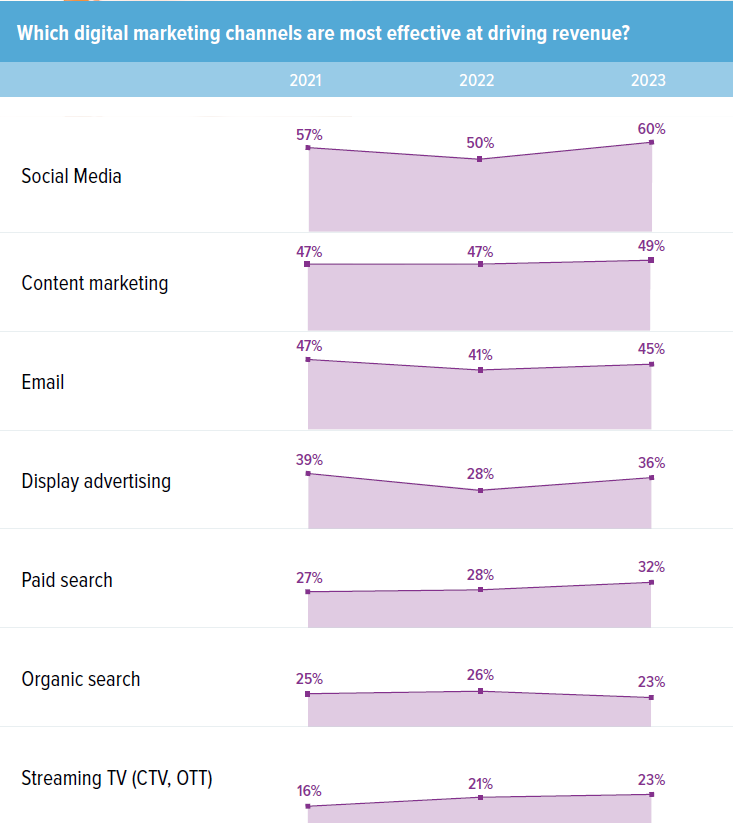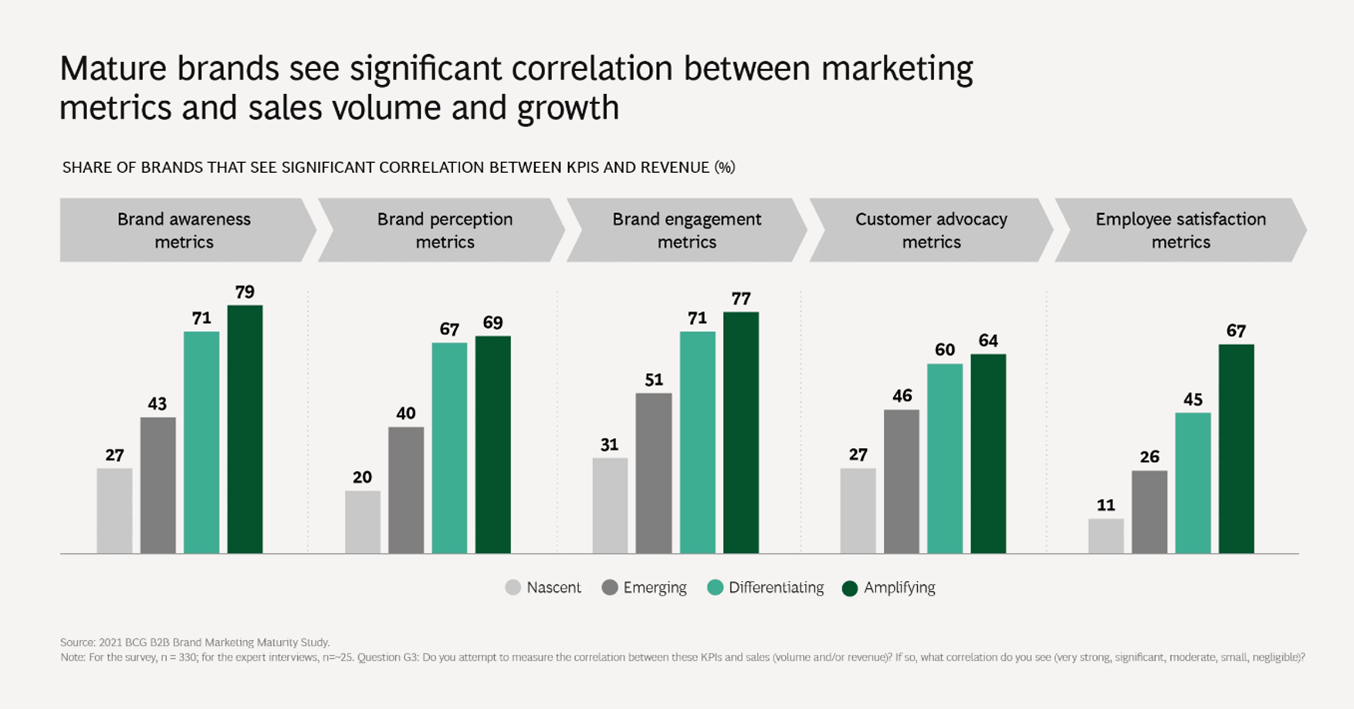
“How many leads have we got from this awareness campaign?”
“Should we put a lead gen form on this blog ad?”
“Don’t bother with organic, put all your time into lead gen ads.”
Nearly every social media manager in any business-to-business company will recognise these statements. But, in 2023 it should go without saying that social media is more than just a step along the marketing funnel. Failing to recognise the full potential of social media will negatively impact your marketing in the long term, and focusing solely on lead generation will not unlock this potential. With 60% of B2B marketers saying social media is the most effective channel for driving revenue in 2023, you and your company can’t afford to ignore social media best practices.

Source: 2023 State of Digital Marketing, WPromote
Lead generation is important
Social media channels are indisputably important for generating leads. With 89% of B2B marketers using LinkedIn for lead generation, this fact can’t be underestimated. Compared to traditional advertising methods, social media can also be more cost-effective for lead gen – and social channels offer measurable results, allowing businesses to allocate resources efficiently. However, lead generation is only one of the many uses B2B companies can get out of social media.
Social media can also nurture leads
Going hand in hand with lead generation, social media done right allows businesses to nurture leads. By consistently delivering valuable content to engaged audiences, organic social media can embed your brand in prospective customers’ minds. Meanwhile, targeted (and retargeted) social media ads can help leads become sales, by delivering insightful content to those that have previously engaged with your business.
Social media lead nurturing can build trust and credibility for brands, making leads more likely to convert into customers.
Brand building
A 2021 survey conducted by Boston Consulting Group and Google found that brand marketing can be just as effective in the B2B realm as in B2C—if not more so.

Source: BCG 2021 B2B Brand Marketing Maturity Study
Two years later, B2B companies are beginning to recognise this – LinkedIn for Business’ annual benchmarking report this year showed that globally nearly 60% of B2B marketing leaders say their C-suite has increased the importance of brand building given economic conditions. But B2B companies often operate in very crowded and competitive environments, and as such they can struggle to differentiate their brand from the pack.
Organic social media provides a free stage for companies to build their brand, while social media ads can help reach new audiences who may have been unaware of a company, their culture, and their specialisations. Focusing solely on leads on social media while ignoring brand building not only misses the potential of social media as a marketing tool but is bad for business.
Customer engagement and understanding
Social media provides a platform for direct communication with customers, business prospects, industry influencers, and potential partners. B2B companies and their employees can engage in conversations, answer questions, and address concerns in real time, demonstrating their industry knowledge as well as their commitment to customer satisfaction. Social media platforms, and social listening tools like Sprout Social, Meltwater and Pulsar can also provide businesses with data and insights on industry trends and conversations, and what is keeping their customers up at night.
Company culture and recruitment
In 2018 Glassdoor reported 79% of job seekers were using social media for their job search. Three years later a CareerArc study reported that a massive 96% of job seekers used social media when conducting a job search. It is fair to say that in 2023, candidates are highly likely to explore a B2B company’s social media presence before applying for a role. Therefore, it’s essential for B2B companies to maintain an engaging presence on the main social media platforms.
Regularly updating social media profiles with relevant content that showcases company culture, values, achievements, and commitment to employee well-being can help attract talented candidates. Responding promptly to inquiries and comments also demonstrates your engagement with your online community. This can help create a positive impression on potential candidates and enhance your employer brand.
Final thoughts
The landscape of digital marketing in 2023 demands a holistic approach to social media that goes beyond lead generation. While lead generation remains crucial, it’s imperative for B2B companies to recognise the multifaceted potential of social media. Social platforms offer a cost-effective means of lead generation, but they also serve as powerful tools for lead nurturing, brand building, customer engagement, and talent recruitment. Neglecting any of these facets not only limits the true potential of social media as a marketing tool but also hinders long-term business growth.